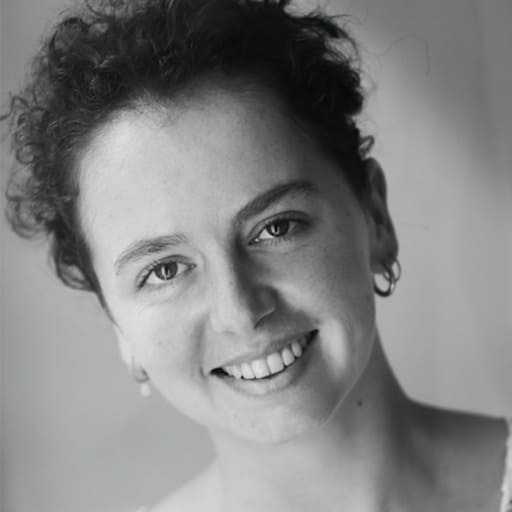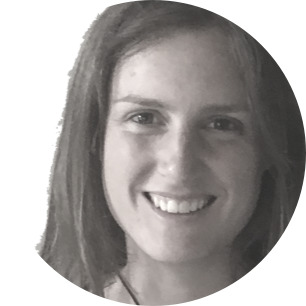How to Prove Your French Language Level for French Naturalization: A Practical Guide
You've met the administrative requirements to apply for French citizenship but now you need to prove your French language skills? This article walks you through everything you need to know: the required language level, how to self-assess your skills, which French certifications are recognized for French naturalization, and how to prepare for both the language exam and the citizenship interview. With practical tips and expert advice, we'll help you approach this step with clarity and confidence.

Are you getting ready to apply for French citizenship or planning to start the process soon? There are two big steps ahead: proving your French level (minimum B1 as of 2025) and succeeding in the citizenship interview. In this guide, we'll focus on the language part of the process: what level of French is required, how to choose the best French exam for naturalization in France, and how to prepare efficiently and confidently.
Knowing the language requirements in advance will help you choose the right exam, understand how to pass the French B1 test for citizenship, and feel more relaxed during both the test and the interview.
You'll be guided by Fabienne, our Program Director at Novexpat, who shares practical tips and a clear step-by-step method to help you prepare with confidence and meet all the requirements, calmly and successfully.
In this article, you'll find:
- Clear details on the required level of French for naturalization
- A list of French language certificates recognized by the prefecture
- Practical tips to help you prepare for the B1 or B2 French level
- Advice on how to approach the language exam and the citizenship interview with confidences
Why Do You Need to Prove Your French Level to Apply for Citizenship?
Applying for French citizenship involves more than just paperwork: you also need to show that you speak the language. France places great importance on the integration of new citizens, and language is a core part of that process. Like many EU countries, France has required at least a B1 level in French since 2017 to grant naturalization. Whether it's for your professional life or everyday interactions, reaching the B1 level in French offers real advantages!
However, a recent decree, coming into effect in January 2026, will raise the bar: applicants will need to prove a minimum level of B2 (upper-intermediate). This means being able to express yourself clearly and in detail, even in more complex situations. At B2, you should be able to take part in conversations on a wide range of topics, give and justify your opinions, explain pros and cons, and write structured, well-organized texts.
Keep in mind that the citizenship interview is conducted in French. While it's not designed to test your language skills, being comfortable at an intermediate level will help ensure a smooth and natural conversation during this important step.
What French Level Is Required to Apply for Citizenship?
B1 in 2025, B2 Starting in 2026
As of now, applying for French citizenship requires a B1 level in both speaking and writing. This intermediate level means you can handle everyday situations and communicate effectively in French. So it's important to aim your preparation toward this goal. But what exactly does a B1 level mean across the 4 key language skills?
- Listening comprehension: You should be able to understand basic conversations, radio segments, or videos on everyday topics.
- Speaking: You should be able to join in regular conversations, explain your ideas, and answer questions about familiar subjects (like your family, work, daily life, hobbies, or travel).
- Reading comprehension: You should be able to read simple texts, letters, or administrative documents.
- Writing: You should be able to write short, clear texts like a letter or complete basic official forms.
Several recognized exams and diplomas can certify your B1 level in French. Choosing the right one and preparing properly will give you the best chance of success!
How Can You Tell If You're Already at the Right Level?
How do I know if I'm at B1 level?
There are a few ways to check:
Take a placement test. Many schools and websites offer free online assessments to help you estimate your current level.
Refer to the CEFR (Common European Framework of Reference for Languages), which outlines what each level looks like. Here's the official French government guide. The B1 level is considered an "independent user" level. That means you can:
- Understand the main points in a conversation when clear, standard language is used on familiar topics like work, school, or leisure
- Manage most situations that might come up when traveling in French-speaking areas
- Produce simple, coherent speech on familiar subjects and areas of personal interest
- Talk about an experience, describe a dream or goal, and briefly explain your reasoning or a plan
Are B2, C1, or C2 certificates also accepted?
B1 is the minimum requirement, so if you have an official certificate showing a higher level like B2, C1, or C2, that's perfectly valid.
In fact, if your current skills allow it, we often recommend that learners aim for the B2 or even C1 diploma. These are useful not only for naturalization but also for your résumé and career development. And since B2 will soon become the minimum required level in 2026, preparing for it now might be a smart move if you're already close!
What About the French Level Required for the Citizenship Interview?
As part of your naturalization journey, you'll have an important one-on-one conversation: the citizenship interview, held at your local prefecture. This interview is in French, but it's not a language exam – there's no score, and minor mistakes or grammar slips won't be held against you. The goal is to get to know you better and make sure you understand what it means to become part of the French national community.
The interview is meant to be a positive, respectful conversation – not a test. We recommend reading the Citizenship Handbook ahead of time. It will help you become familiar with key citizenship-related vocabulary.
During the interview, you'll be asked about core principles and values that shape French society 🇫🇷:
- Liberty, Equality, Fraternity
- Secularism (Laïcité)
- Respect for the law and living together peacefully
- Rejecting all forms of violence or discrimination
You don't need to be a historian, but you should know:
- French symbols like the national flag, the Marseillaise, the motto, etc.
- Major historical events like the French Revolution
- How the French Republic works—its president, parliament, courts, and so on
You'll also talk about yourself and your life in France:
- Your work or education
- Your family life or community involvement
- How you participate in French society—paying taxes, enrolling your children in school, etc.
This is not a trap or an interrogation! It's simply a human conversation to make sure you understand what becoming French means, that you share the values of the Republic, and that you're ready to fully embrace them.
Which French Diplomas and Certificates Are Accepted for Naturalization?
Officially Recognized French Language Certifications for Naturalization
To prove your French level, several certificates are accepted by French authorities. Here are the most common options:
The DELF (Diplôme d'Études en Langue Française)
Issued by the French Ministry of Education, this diploma is widely recognized and ideal for levels A1 to B2. If you're aiming for B1 or B2, DELF is a great choice. Expect a 1-month wait for your results and 3 to 6 months for the official diploma.
The DALF (Diplôme Approfondi de Langue Française)
Also issued by the Ministry of Education, this diploma certifies advanced levels – C1 and C2. If you're at that level, DALF is an excellent option. Results usually arrive within 1 month; the diploma follows 3 to 6 months later.
The DCL (Diplôme de Compétence en Langue)
A diploma with a professional focus, also issued by the Ministry of Education. It's less known than the DELF but a great alternative, especially for levels A2 to C1. Results typically arrive within a month.
The TCF (Test de Connaissance du Français)
This test is recognized by French authorities and administered by France Education International (FEI). It's often used for official procedures like naturalization.
The TEF (Test d'Évaluation de Français)
Managed by the Paris Chamber of Commerce and Industry, the TEF is another recognized test often used for immigration and citizenship.
Results for both tests usually arrive in about two weeks. It's important to understand the difference between the standard TCF and TEF and the TCF/TEF IRN (Integration, Residence, Nationality) versions:
TCF and TEF “Tout Public”
These versions assess levels from A1 to C2. They offer a certificate with required sections (listening, reading, grammar) and optional sections (speaking and writing). If you earn a B1, it can be used for your naturalization application.
TCF and TEF IRN
These versions assess levels from A1 to C2. They offer a certificate with required sections (listening, reading, grammar) and optional sections (speaking and writing). If you earn a B1, it can be used for your naturalization application.
What Are the Differences Between These Language Exams?
While all these tests assess your French level, they differ in format and purpose:
TCF and TEF are placement tests—they're faster to take and generally less expensive than full diplomas like DELF or DCL. You don't need to choose a specific level in advance. These tests are valid for 2 years, so your naturalization application must be submitted within that time frame. They're more oriented toward practical use cases like immigration and work integration. Prep can be done online or with institutions like the CCIP (for TEF) or FEI (for TCF). You may want to combine this with one-on-one or group language lessons.
DELF, DALF, and DCL are lifetime diplomas. They're more structured and require formal preparation. DELF and DALF require you to pick a level when registering. DCL, however, evaluates your level between A2 and C1 automatically and focuses more on professional French—making it a strong asset for your CV. Preparing for these diplomas is more demanding but also more valuable long term, both for daily life and your career.
To help you decide, we've put together a comparison table of these certifications:
How to Prepare Well for Your French Exam and Mistakes to Avoid
How to Prepare for the TCF or TEF?
These tests are designed to be intuitive and accessible, even without prior preparation. You can think of them as level placement tests! However, becoming familiar with the format can greatly help you feel more confident on exam day.
For this, the Prepmyfuture platform, in collaboration with the organizations that design the TCF and TEF, offers two online training platforms. Access costs €99 but provides comprehensive resources based on recent past papers.
If you're preparing for the TEF IRN, the CCIP also offers a free simulation of the test.
You can also use preparation books. These are a useful option, though they are less interactive and harder to use independently.
Our recommended books:
- For the TEF: TEF Test d'Évaluation de Français [Nouvelle édition] – Practice book published by Hachette FLE
- For the TCF: ABC TCF Tous Niveaux available from CLE International
If you have the chance to train with a teacher, they can provide you with personalized exercises tailored to your profile and difficulties, helping you improve in each skill.
How to Prepare for the DELF?
The DELF is a diploma exam, which means it is valid for life. You register for a specific level, which distinguishes it from tests like the TEF or TCF. These only assess your current level, while the DELF certifies that you have reached the specific level you enrolled for.
Exam topics are based on everyday life scenarios, making the content concrete and practical. Since the exam format is structured, proper preparation is essential to adapt and perform well on exam day.
Again, Prepmyfuture offers a training platform for the DELF B1 and B2 exams. The content was developed in partnership with the Alliance Française de Paris.
To become familiar with the exam format, there are also several preparation books available, but preparing only with a book and on your own is not recommended—unless you've already mastered the targeted level. The DELF often requires both linguistic and methodological preparation. That's why working with a teacher, in a group or private class, can be extremely helpful and effective.
Depending on your starting level, the amount of coursework required can vary. But if you are already close to the desired level, 9 hours of lessons may be enough.
At novexpat, many learners combine their FrenchBooster program or FrenchUp classes with DELF preparation. The benefit of this approach is to combine progress in general French, preparation for daily conversations, and personalized DELF training.
How to Prepare for the DCL?
The DCL is also a diploma exam, valid for life, and overseen by the Ministry of National Education. Unlike the DELF, it evaluates your current language level (between A2 and C1), which removes the stress of registering for the right level! Another key difference is that the DCL focuses on professional scenarios, while the DELF is more general. The exam is highly structured, even more than the DELF, and requires thorough preparation to be ready to perform well on the big day.
The format is very standardized, based on a complete real-life situation where each part of the test is interconnected (unlike the DELF where exercises are separate). This format can actually make the test easier, and with good preparation, you can really excel.
Unfortunately, there are no online resources or books available for self-preparation. You can only consult sample DCL FLE exams provided by the Ministry of National Education.
However, some schools partnered with the diploma offer preparatory courses. Novexpat is one of these schools! Our FrenchBooster and FrenchUp programs are compatible with DCL FLE preparation, either individually or via the CPF.
Extra Tips to Help You Succeed on Your French Exam
Knowledge is power! A good chunk of your score can come simply from being familiar with the structure of the exam – how the different sections work, how much time you'll have, what the graders are looking for, smart strategies, and common traps to avoid.
Practice with past exams
If you can, try at least one official past exam (known as an annale in French). If you're working with a teacher, it's a good idea to start with a diagnostic exam (taken without prep) to identify your strengths and areas to improve. Then, focus on exercises that target your weak spots, and follow up with a full practice exam to track your progress and fine-tune your strategy. If you have time, one final mock exam just before the real thing can really help lock in your timing and confidence.
Make sure your prep matches your level
One of the quickest ways to feel frustrated is to aim too high too fast. If you're still around A2 level, it's crucial to work with materials tailored to that stage. Trust the process: step by step, you'll work your way to B1. Don't rush; a steady, realistic path will keep you motivated and help you build solid skills.
Be ready for the unexpected
Things don't always go as planned on exam day – there might be background noise, tech issues, a distracting test taker, or an uninspiring topic. Feeling a little stressed is normal. But remember: you've prepared well, you've built strategies and reference points to guide you through. Focus on those strengths, and you'll be able to handle whatever comes your way.
Give yourself a breather before the exam
Aim to stop intense studying at least three days before the exam. From that point on, take time to relax and avoid reviewing your notes. Trust the work you've done and use those final days to recharge so you can show up rested and ready.
Proving your French level is a key step in applying for French citizenship. With the right preparation, you can go into the exam with confidence and peace of mind. There are many ways to get to the required B1 level through tests, lessons, or everyday practice. At Novexpat, we're here to guide you through this journey, and we encourage you to aim even higher with certifications like the DELF or DCL. These not only help with your application, but can boost your career and highlight your language skills. Our French courses for expats in Paris are tailored to help you succeed, so don't wait and get started today and move one step closer to becoming a French citizen!

